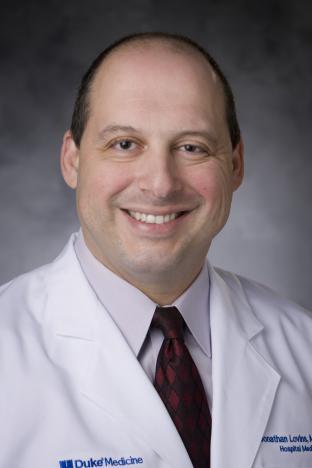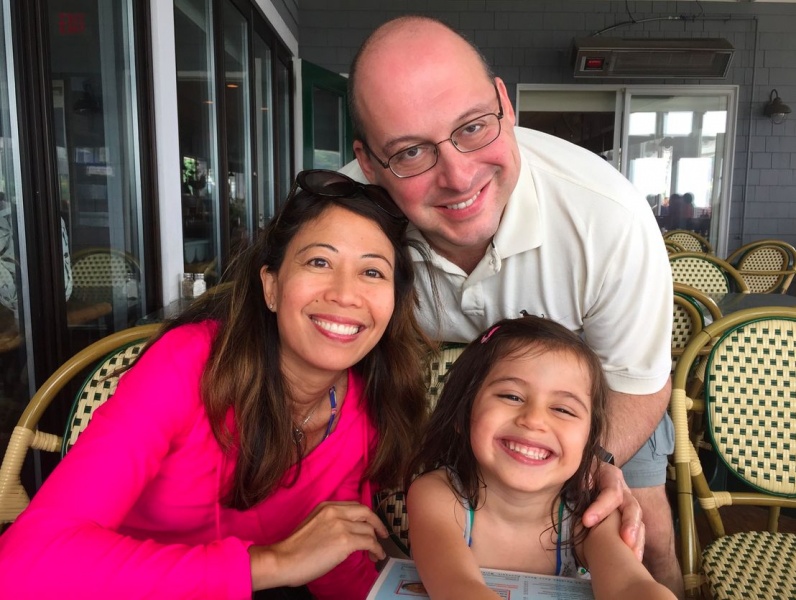
Our spotlight this week focuses on Dr. Jon Lovins, a hospitalist and medical informaticist. Jon recently completed the Duke graduate program, Master of Management in Clinical Informatics (MCCi). This program is about the merger of data science and management within health systems. For our interview he tells us about hospital medicine and informatics, his family, music, and being a fan of science fiction.
How long have you been in the division of General Internal Medicine?
I started at Duke in 2009 in the division of General Internal Medicine at Duke Regional Hospital in the department of Hospital Medicine.
What are your responsibilities within the division? What does a typical day for you look like?
I work as a hospitalist 50% of the time and I do medical informatics the other 50% of the time. As a hospitalist I care for medical inpatients and do a combination of rounding and admitting shifts. On a typical rounding shift, I see anywhere from 13 to 16 patients with a wide variety of medical problems from chest pain to sepsis, and help bring them back to their former state of health. An admitting shift can be daytime, evening or night. We take care of admissions from the ED, consults from other providers, transfers out of the ICU and transfers from outside hospitals including Duke University Hospital.
Could you tell us more about your role as a hospitalist?
Hospitalists care for adult inpatients and we primarily diagnose and treat medical illnesses. We order medications and radiology studies, coordinate care with other providers, communicate with patients and nurses and focus on providing safe transitions of care for patients after discharge so they stay healthy and minimize avoidable re-hospitalization.
What's it like being a hospitalist?
Being a hospitalist is both very rewarding and can be challenging. It is an honor to be able to help so many people every day, and utilize the many tools that modern medicine has to offer. It is also very gratifying to work with all the highly skilled and professional medical, nursing and other staff at Duke. Most of us don’t love working nights, but it’s part of the job. Sometimes it gets a little tricky balancing the multitasking of answering pages while caring for patients.
How did you get into internal medicine?
I struggled choosing a particular specialty in medical school because they were all interesting and yet I didn’t want to be limited to a specific organ system. I enjoyed the variety of general medicine and I knew that I did not enjoy surgery. I liked the idea of being able to take care of most of the problems that a patient might have as opposed to being limited to only one area.
How has your subject area changed?
I would say that information technology has transformed hospital medicine and all other areas of medicine. All ordering and documentation and now looking up medical references are all done with computers and specifically the electronic medical record. I am working very hard to improve the interaction between physicians and the EMR so that we leverage the power of that technology and minimize the inconveniences.
 What passions or hobbies do you have outside of the division?
What passions or hobbies do you have outside of the division?
I’m in a band with Dr. Eric Westman and I like to read science fiction (currently reading The Martian) - Between that, work, and kids, there’s not much time for anything else! [This is a photo of Dr. Lovins with his wife, Florence, and one of their 3 children, Yael.]
Have you recently read any books, articles, blog posts or other material that would be of interest to the division?
I really enjoy the “radio lab” podcast which focuses on interesting scientific topics. This week was about the discovery of penicillin and the use of an ancient Viking remedy to cure infections which just coincidentally kicked MRSA’s a**!